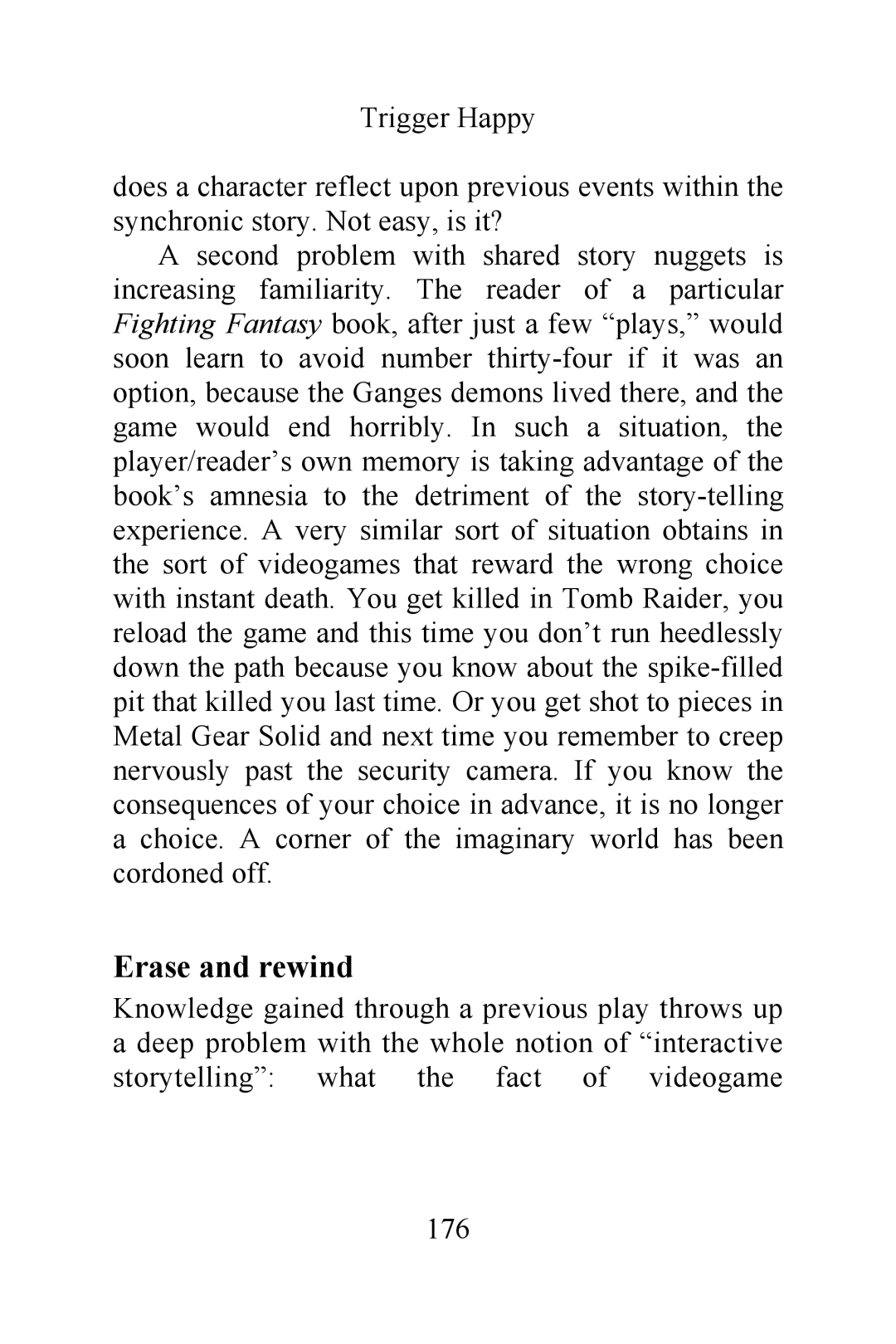Trigger Happy
does a character reflect upon previous events within the synchronic story. Not easy, is it?
A second problem with shared story nuggets is increasing familiarity. The reader of a particular Fighting Fantasy book, after just a few “plays,” would soon learn to avoid number thirty-four if it was an option, because the Ganges demons lived there, and the game would end horribly. In such a situation, the player/reader’s own memory is taking advantage of the book’s amnesia to the detriment of the story-telling experience. A very similar sort of situation obtains in the sort of videogames that reward the wrong choice with instant death. You get killed in Tomb Raider, you reload the game and this time you don’t run heedlessly down the path because you know about the spike-filled pit that killed you last time. Or you get shot to pieces in Metal Gear Solid and next time you remember to creep nervously past the security camera. If you know the consequences of your choice in advance, it is no longer a choice. A corner of the imaginary world has been cordoned off.
Erase and rewind
Knowledge gained through a previous play throws up a deep problem with the whole notion of “interactive storytelling”: what the fact of videogame
176
